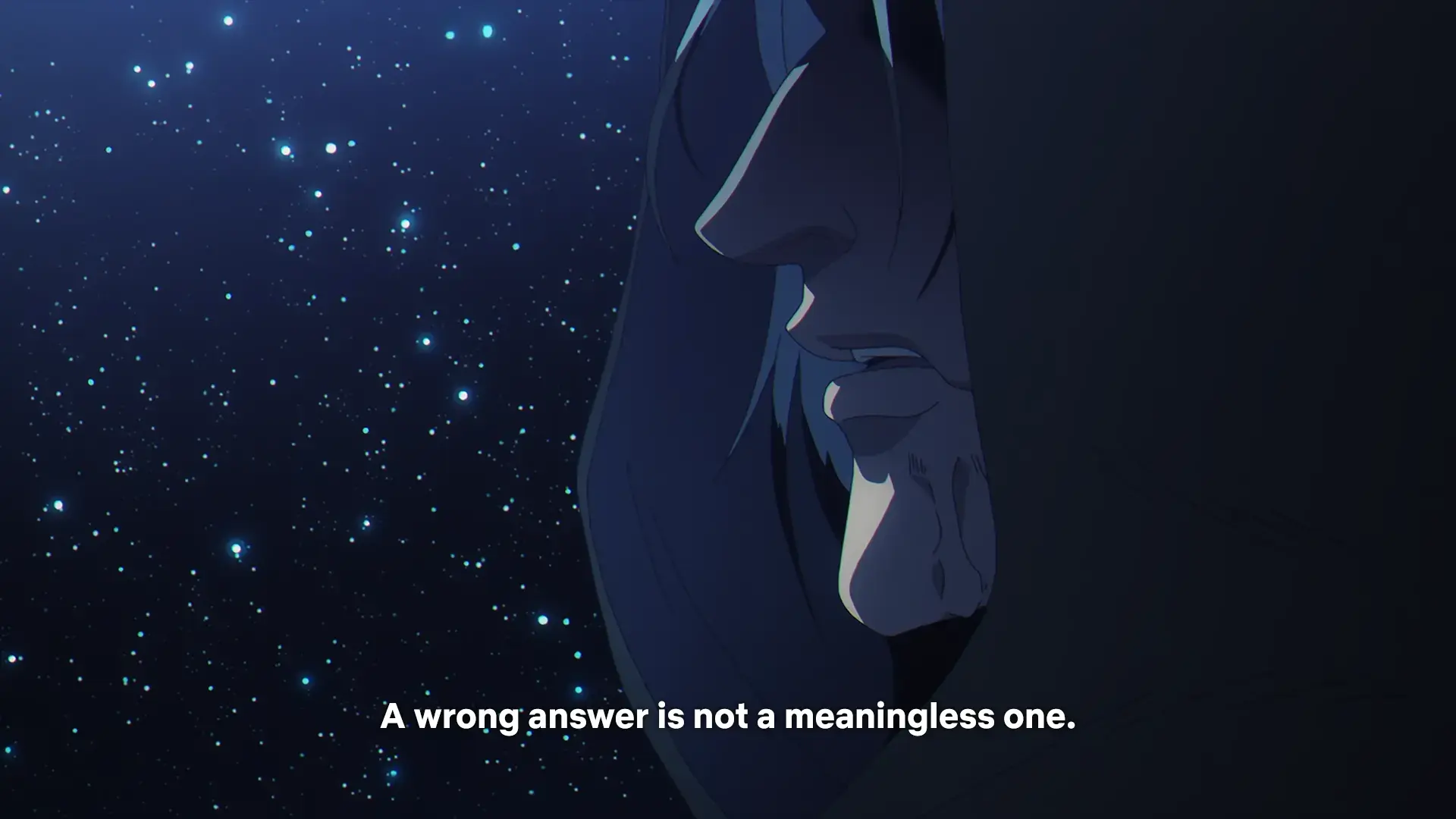At least for this episode, the torture happened off screen...
We unfortunately lose our heliocentric sensei this episode, but not before he leaves us with some words of wisdom (@rikka@ani.social):

I often say something similar to junior scientists I work with in the lab. I usually phrase it as a negative result is still a result. We can learn just as much (and often more) when things don't work out the way we hope or expect them to than when they do. I remember back when the LHC was about to be turned on and some of my physics colleagues were really excited and hopeful for the standard model to fall apart once we started getting data back. Unfortunately, it still stands...
There were two additional science topics I wanted to bring up this episode. The first of which is a carryover from last episode:
This is the scale by which we measure how bright stars are. Rafal talked about how he is able to see stars with magnitude 6 and Hubert mentions how that must mean he has good eyes. This is because magnitude 6 is about as dim a star as you can see without any kind of light pollution or magnification. As a point of comparison, a magnitude 6 star is ~10,000 times dimmer than Mars or Jupiter in the night sky. That number doesn't really give you a good intuition because our eyes don't really work on a linear scale though, so magnitude uses a logarithmic scale. Mars/Jupiter are magnitude ~-3 (smaller numbers mean brighter). Another comparison would be Polaris, colloquially known as the North Star, which has a magnitude of ~2. For an illustration, wikipedia has one:

This is the star referenced in this episode and is the name given to the middle of the three stars that comprise the belt of Orion. I don't have too much to add here other than that the three stars in the belt of Orion have served as a distinguishing feature in the night sky for many different cultures across history due to the relative brightness of all three and their close proximity. It is easy to pick out quickly to get your bearings. Also, as a bit of trivia for me personally, I have previously worked (in collaboration) with a company called Alnylam which derives its name from this star.
